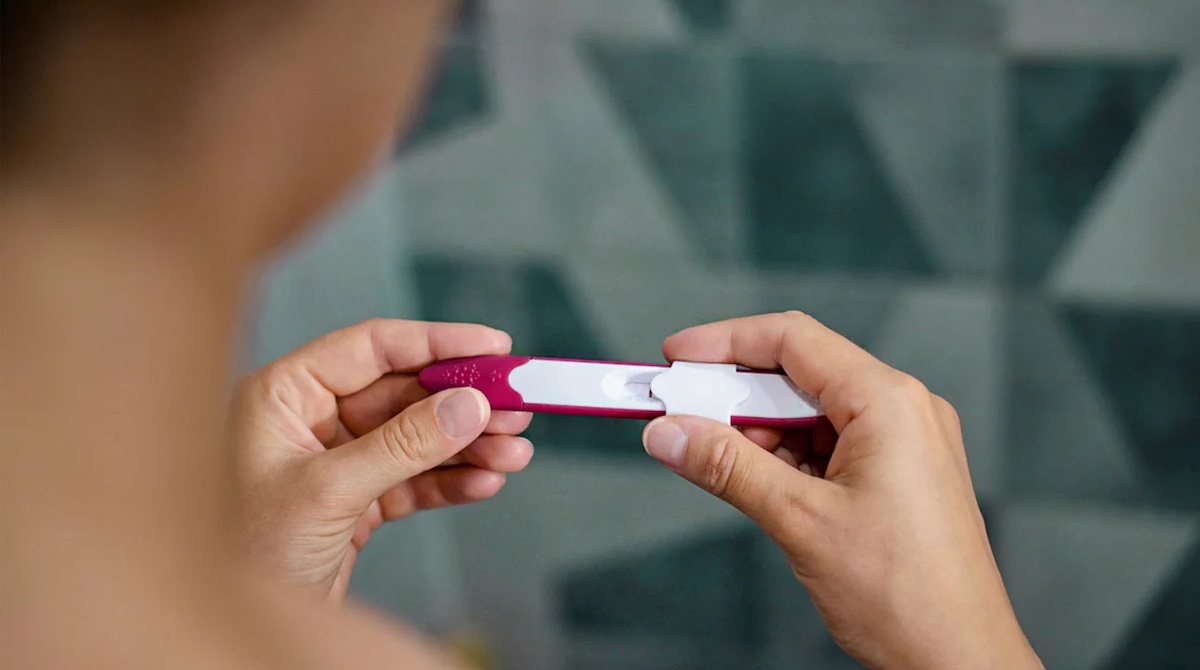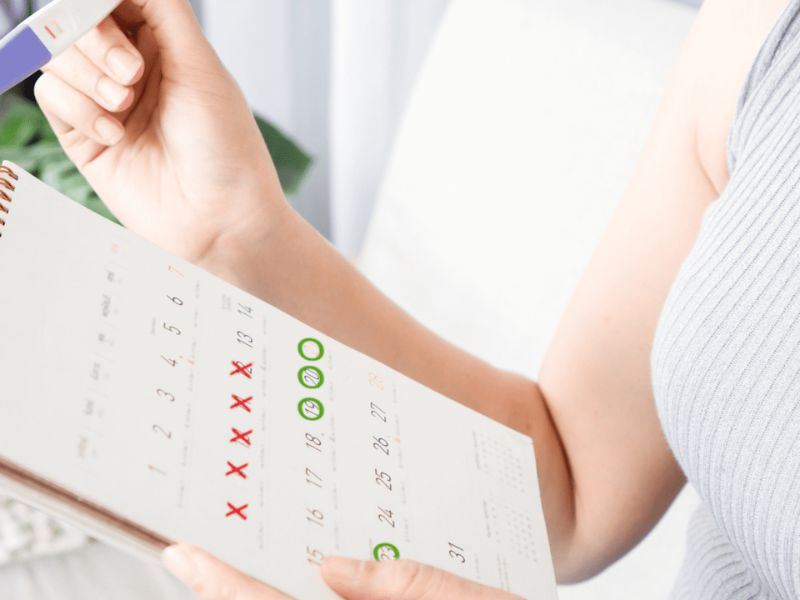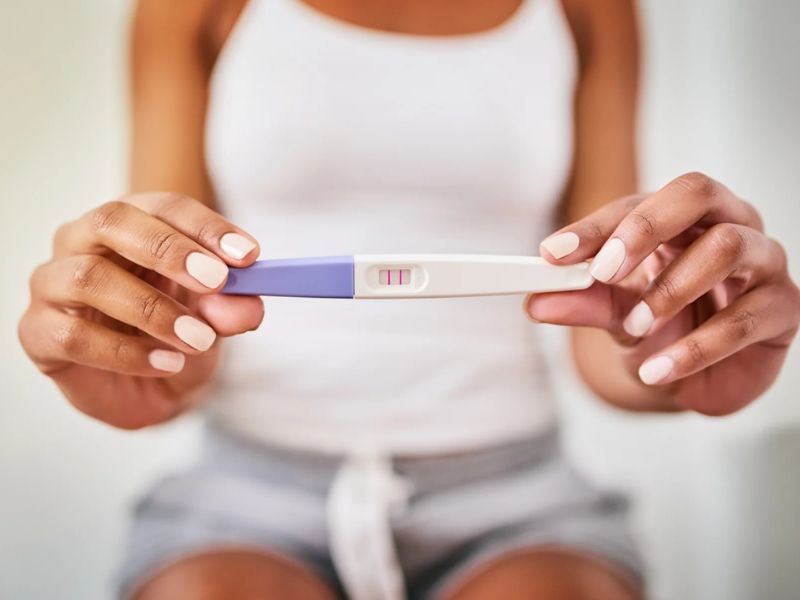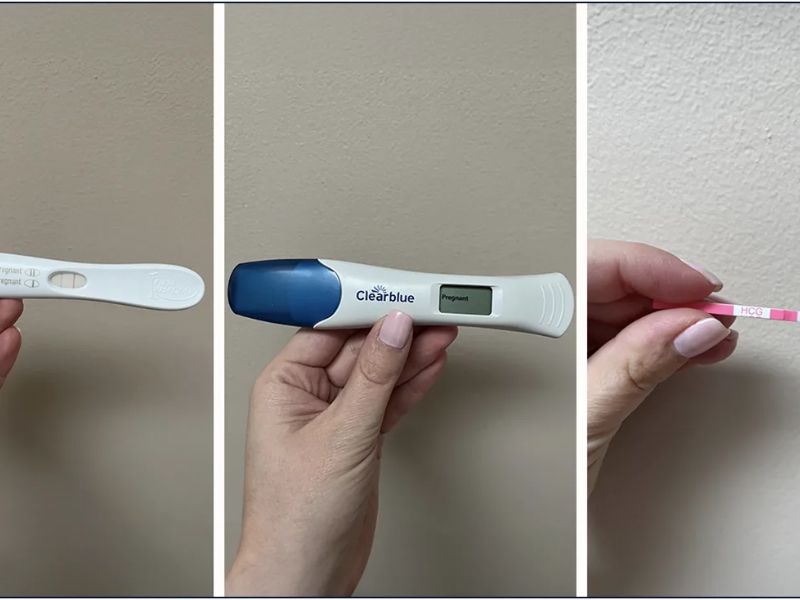
28-day cycle when can I test for pregnancy?
28-day cycle when can I test for pregnancy? Determining when to test accurately within a 28-day cycle is an important factor in managing a woman’s reproductive health and deciding when to take a pregnancy test. Determining this time helps increase your chances of success when trying to conceive or prevent an unwanted pregnancy.
Phases in the 28-day cycle and determining ovulation day
In a 28-day menstrual cycle, there are the following important phases:
- Days 1-5: Menstrual phase: This is the beginning of the cycle, when the previous cycle ends, that is when menstruation begins. During this phase, the uterus eliminates the uterine lining that has accumulated during the previous cycle, leading to menstruation.
- Days 6-14: Post-menstrual and pre-ovulation phase: During this phase, the body prepares for ovulation. The uterine lining begins to recover and thicken in preparation for accepting a fertilized egg. Estrogen hormone levels begin to increase, creating conditions for ovulation to occur.

- Day 14: Ovulation day: This is the day when the egg is released from the ovary and is ready to be fertilized. In a 28-day cycle, ovulation usually occurs mid-cycle, which is between days 13-15. This is the best time to try to conceive because the egg only lives for about 12-24 hours after ovulation.
- Days 15-28: The period after ovulation and before the next menstruation: If the egg is not fertilized, then after ovulation, the body prepares for a new cycle. Progesterone hormone levels increase, which helps maintain the uterine lining in preparation for accepting a fertilized egg. If there is no pregnancy, the uterine lining will be shed when the next menstrual cycle begins.
To determine your ovulation day in a 28-day cycle, you can use methods such as tracking your menstrual cycle, using an ovulation test kit (OPK), or monitoring biological signs such as fluid changes. vaginal and lower abdominal pain. Ovulation usually occurs around mid-cycle, approximately from day 13 to day 15 of a 28-day cycle.
28-day cycle when can I test for pregnancy?
The ideal time to take a pregnancy test is:
- 10-14 days after ovulation: After ovulation, the egg can live for about 12-24 hours and can be fertilized during this time. Then, if the embryo is successfully fertilized, it moves down into the uterus and begins to develop. Pregnancy testing about 10-14 days after ovulation can provide the most accurate results because the level of hCG (pregnancy hormone) in the urine can be high enough to be detected by pregnancy test kits.
- 1-2 days before the expected menstrual period: If the pregnancy has been successfully fertilized, the level of hCG in the urine will increase rapidly in the following days. A pregnancy test 1-2 days before your expected period can provide an accurate positive result if the hCG level is high enough to be detected.

However, it should be noted that:
- You can take a pregnancy test sooner if there are signs of pregnancy: If you have signs such as cramps, nausea, fatigue, or other changes in your body that you suspect are signs of pregnancy, you can take a pregnancy test. get pregnant earlier.
- Pregnancy test results may not be accurate if tested too early: If the pregnancy test is taken too early, hCG levels may not be high enough to be detected, leading to false negative results. To ensure accurate results, you should wait at least 10-14 days after ovulation or 1-2 days before your expected period to perform a pregnancy test.
Pregnancy testing methods
The two most popular pregnancy testing methods are pregnancy tests and blood tests. Here are some characteristics of each method:
Pregnancy test
- Easy to use and quick results: A pregnancy test is a simple and convenient method to check whether you are pregnant or not. Users just need to perform a urine test on the test strip and wait a few minutes to see the results.
- Can be purchased at pharmacies: Pregnancy tests are widely available and can be easily purchased at pharmacies, drug stores, or online.

Blood tests
- Gives more accurate results than a pregnancy test: Blood tests often give more accurate results than pregnancy tests, especially in the early stages of pregnancy when hCG levels may be very low.
- Needs to be done at a hospital or clinic: Blood tests need to be done at a hospital, clinic or specialized medical laboratory to take blood samples and analyze them. This may take more time and effort than using a pregnancy test.
Note:
- Both methods can provide accurate results about whether or not you are pregnant. However, a blood test is often recommended if you need accurate results, especially in cases where there are signs of pregnancy and the pregnancy test shows a negative result.
- If you use a pregnancy test and receive a positive result, you should confirm the result with a blood test to ensure accuracy and continue to monitor your pregnancy health.
Advice
- Record your menstrual cycle to track ovulation: Recording your menstrual cycle will help you track and predict ovulation, thereby determining the appropriate time to take a pregnancy test.
- Use a high-quality pregnancy test: Choosing a high-quality pregnancy test will help ensure the accuracy of the pregnancy test results, making you more confident in determining pregnancy.
- Consult your doctor if unsure about the pregnancy test results: If you experience any doubts or uncertainties about the pregnancy test results, always consult your doctor or specialist medical. They can provide expert advice and support in your decision-making and reproductive health management process.
So Evaworlds has helped you answer “28-day cycle when can I test for pregnancy“. Hopefully, this knowledge will be useful to you in monitoring your pregnancy and childbirth. If you have any other questions, please comment below the article.














